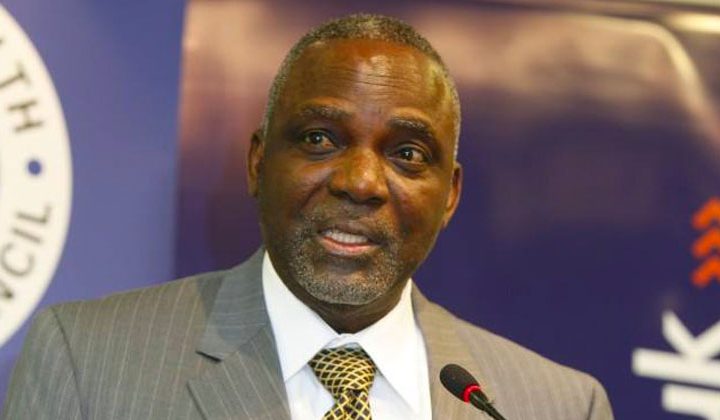By Elsie Udoh
Telemedicine has been around in Nigeria for quite some time. If you’ve followed Prime Business Africa for quite some time, you’d know its boom started a while back. Want to catch up on its history? Click here. However, despite its long existence, the average person may still be unaware of telemedicine’s role in healthcare, even though they might have unknowingly used it.
Join our WhatsApp ChannelThink about it—how many times have you called a doctor to explain symptoms and gotten advice or a prescription over the phone? That’s telemedicine! And most of us have been doing it for years without realising it had a name.
While telemedicine has been hailed as the future of healthcare in many parts of the world, including Nigeria, it hasn’t quite taken off as one might expect. In this article, we’ll explore the challenges Nigeria faces in fully adopting telemedicine and why it’s not talked about as much as it should be. We’ll also compare where telemedicine has made strides to where it’s still falling short.
Understanding Telemedicine’s Long Journey in Nigeria
Let’s start with some background information. Nigeria’s healthcare system faces significant challenges—overcrowded hospitals, a shortage of qualified healthcare professionals, and the ever-present difficulty of accessing care in rural areas. Telemedicine has long been viewed as a solution to these issues, with the promise of connecting patients to doctors via digital platforms, cutting out the need for long, stressful trips to hospitals.
So, why isn’t it booming?
The truth is that the adoption of telemedicine has been slow, largely due to systemic challenges and infrastructural deficiencies. When you compare Nigeria to more developed nations, where telemedicine is seamlessly integrated into healthcare, the gap is glaring. We’ll analyse this in more detail shortly, but first, let us compare the integration of telemedicine in Nigeria to other countries.
Comparing Telemedicine’s Integration in Nigeria to Other Countries
In countries like the United States or the UK, telemedicine became mainstream during the COVID-19 pandemic. There, digital consultations were seen as a way to keep both doctors and patients safe while maintaining healthcare services. Fast forward to the post-COVID era, and telemedicine is now a routine part of their healthcare system, integrated with insurance companies, and supported by robust infrastructure.
In contrast, Nigeria’s telemedicine landscape remains fragmented. Private companies like CribMD, Helium Health, and DoctorCare247 are pioneering services, but they lack the support of widespread governmental initiatives or integration into the public healthcare system. Without government backing or clear policies, telemedicine services in Nigeria remain more of an option for the tech-savvy, urban elite rather than the average Nigerian citizen.
Countries with strong healthcare policies have found ways to make telemedicine available through public healthcare systems, ensuring that even the uninsured or economically disadvantaged populations can access virtual care. Nigeria is still a long way from offering telemedicine as a public service. For the average person, telemedicine can be expensive, and it’s seen more as a luxury than a necessity.
Why Is Telemedicine Adoption So Slow in Nigeria?
There are several reasons why telemedicine hasn’t fully taken root in Nigeria:
Poor Technological Infrastructure
First off, internet connectivity is the backbone of telemedicine. Without fast, reliable internet, virtual consultations become impossible or frustrating at best. While urban areas in Nigeria have seen significant improvements in internet penetration, rural areas—where telemedicine could be a game-changer—are still left behind. In 2023, about 50% of Nigerians had internet access, but the majority of these users were concentrated in cities like Lagos and Abuja. That leaves a large portion of the population unable to access telemedicine services simply due to poor internet infrastructure.
Low Awareness and Trust
Even in places where telemedicine services are available, awareness and trust in the system are still low. Many Nigerians, especially older generations, are more comfortable with in-person doctor visits. The idea of consulting with a doctor over a video call feels foreign and, frankly, risky. How can a doctor who isn’t physically there diagnose a serious condition?
There’s also the matter of trust in technology. Many people worry about data security, feeling uncomfortable sharing their personal health information over the internet. The Nigerian healthcare system already struggles with trust issues, so telemedicine providers need to invest more in educating the public about the benefits and safety measures of using these platforms.
Digital Divide
Telemedicine in Nigeria emphasises the digital divide. Urban residents with smartphones and data plans can access virtual healthcare, but rural Nigerians, who may lack both, are left out. Although mobile penetration has been growing, not everyone can afford the smartphones required for telemedicine consultations. This economic barrier creates inequality in healthcare access.
Regulatory and Legal Concerns
The legal framework around telemedicine in Nigeria is still evolving. Healthcare providers and telemedicine platforms often operate in a regulatory grey area. While traditional healthcare services are regulated by clear policies, telemedicine providers face uncertainty about licensing, data protection, and cross-border medical care. Until there’s more clarity on these issues, many healthcare professionals are hesitant to fully embrace telemedicine.
Moreover, medical ethics play a role. Doctors may be wary of how telemedicine fits into their professional guidelines, especially in the case of misdiagnoses or complications that arise during virtual consultations.
Areas Where Telemedicine Has Made Strides in Nigeria
It’s not all bad news, though. Telemedicine is finding its feet in specific areas, even if it’s not yet ubiquitous.
Urban Growth
In cities like Lagos and Abuja, telemedicine services are increasingly popular, especially among busy professionals who don’t have time to visit hospitals. Platforms like Lifebank are helping connect patients with blood supplies, while apps like One Medical offer quick, virtual consultations for minor ailments.
Specialised Healthcare
Telemedicine is making headway in specialised fields like mental health and chronic disease management. For instance, people suffering from depression or anxiety can now access counselling sessions online. Chronic disease patients, who require regular check-ins with doctors, are increasingly turning to telemedicine for remote monitoring and care. This not only saves time but also reduces costs.
The Road Ahead: What Needs to Change?
If telemedicine is to become more widely adopted in Nigeria, a few things need to happen:
Improved Internet Access
The government needs to invest more in expanding reliable internet access, especially in rural areas. Collaborations between healthcare providers and telecom companies could also lower the cost of data for healthcare services.
Public-Private Partnerships
Private telemedicine providers need to partner with government institutions to integrate digital healthcare into the public health system. This could also help drive down costs, making it more accessible to everyday Nigerians.
Regulatory Framework
A solid legal framework for telemedicine is essential. Clear guidelines on licensing, patient rights, and data protection will help build trust among healthcare professionals and the public.
Education and Awareness Campaigns
Telemedicine providers must educate the public on the benefits and safety of virtual consultations. The more people understand how it works and how secure their data is, the more comfortable they’ll be using it.
Telemedicine is a Long-Term Solution—If We Do it Right
Telemedicine has the potential to be a game-changer for Nigeria, but only if the challenges we’ve outlined are addressed. Right now, the conversation around telemedicine is still limited to tech hubs and the urban elite, but with the right investments, policies, and education, we can make it a healthcare option for everyone. The journey may be slow, but the destination is worth the effort.

















Follow Us